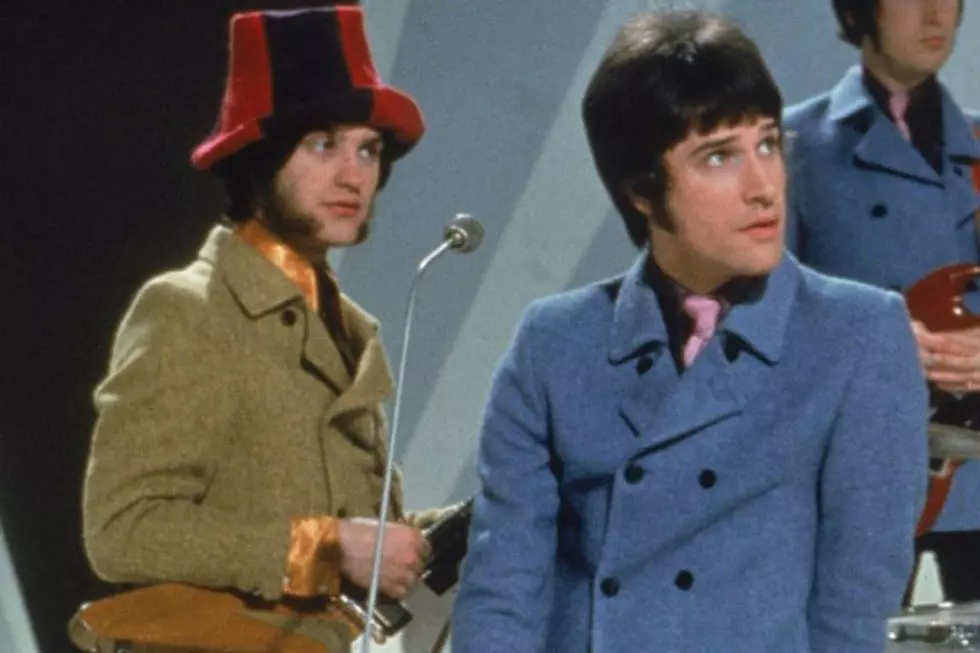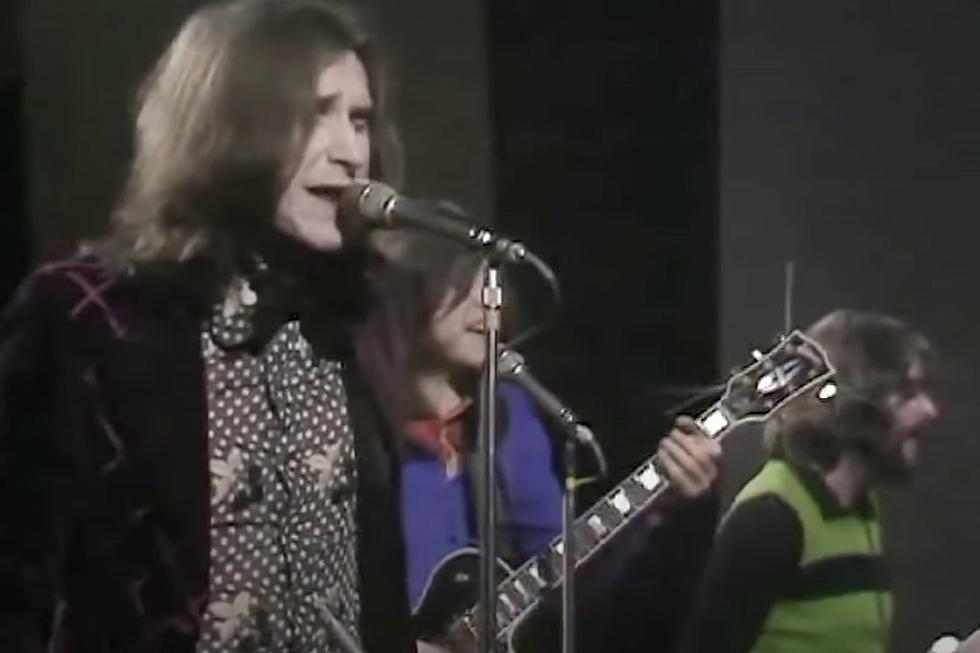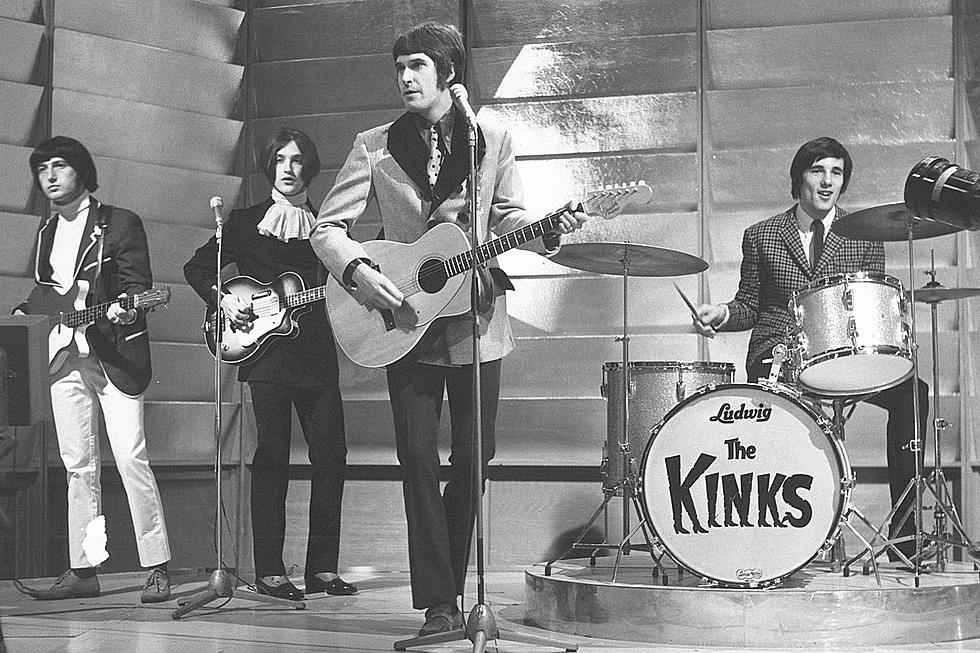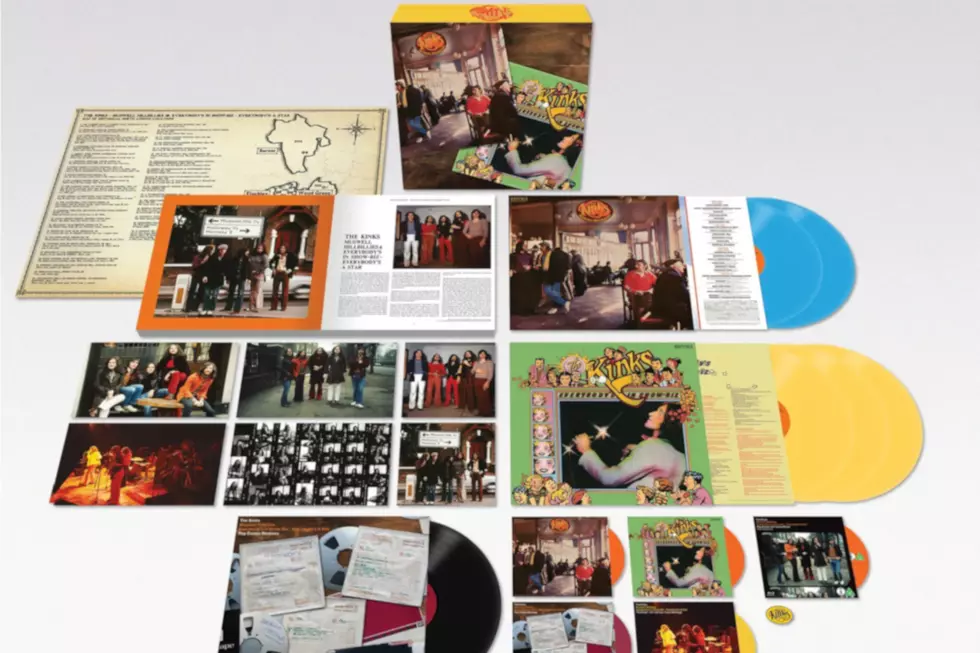
How the Kinks’ Heady Ambitions Drove ‘Arthur’
The Kinks' Ray Davies was not easily deterred.
After his band's initial concept album (1968's The Kinks Are the Village Green Preservation Society) became the first that failed to chart on either side of the Atlantic, other songwriters might have abruptly changed course.
Under a rallying cry of "give the people what they want," they may have cowered in the relative safety of a series of singles, a collection of unrelated tunes – anything easy that did not resemble a song cycle. Instead, Davies began work on an even more ambitious project.
In early 1969, Ray Davies was contacted by British TV producers in regards to creating a television movie. Ray would co-write the teleplay, as well as a soundtrack album that the Kinks would release in conjunction with the airing of the program. As the songwriter set to work planning the teleplay with Julian Mitchell (who would go on to pen the lauded "Another Country" and write episodes for Inspector Morse), a theme began to come into focus.
Davies wanted to expand beyond the village green to examine what it meant to be British in the 20th Century. Mitchell and Davies eventually narrowed that focus by charting the radical changes of the era through the perspective of one man: Arthur.
The writing duo conceived of main character Arthur Morgan as an old carpet layer who had fought in one world war and survived another to build a family and a life in a London suburb, all the while witnessing the shrinking of the British empire and the dwindling of opportunities in his homeland.
Listen to the Kinks Perform "Arthur"
Arthur was based on the real-life Arthur Anning, Davies' brother-in-law who had moved his family to Australia in 1964 to try to build a better life. However, in the fictionalized account, it is Arthur's son, daughter-in-law and grandchildren who move down under.
In the meantime, Ray Davies also was working on the musical components of the story. The rest of the Kinks (which included guitarist Dave Davies, drummer Mick Avory and new bassist John Dalton) had kept busy recording a solo album from Dave that would never see release. The Kinks began recording songs in May, many of them dovetailing with specific elements of the teleplay.
"Victoria" was a satirical celebration of the formerly vast British kingdom, "Some Mother's Son" and "Mr. Churchill Said" dealt with the war years, "Australia" described a way out for some Britons, while "Shangri-La" stayed planted in a suburban paradise ("your reward for working so hard"). The soundtrack was near completion at the end of the month, and Ray turned the majority of his attention back to the TV production.
By summer, Davies and Mitchell had completed the script, hired a director and begin to finalize dates for production and broadcast.
Listen to the Kinks Perform "Victoria"
The initial plan was that the soundtrack for Arthur (Or the Decline and Fall of the British Empire) would come out in July, to be followed by the broadcast of the stage production in September. Complications regarding the financial backing of the play delayed everything, with an eventual plan for an October album release and a December broadcast. Despite the issues, the production moved forward with casting, and location scouting.
Imagine Davies (and Mitchell's) horror when they found out a producer had mismanaged the money side of things and subsequently caused the cancellation of the entire project.
All that remained was the Kinks album. And so, quite unintentionally, the Kinks' soundtrack album turned into a stand-alone concept record – their second consecutive – when released on Oct. 10, 1969.
Arthur married the folksy, slightly baroque feel of the group's most recent efforts with a little more of the edge that distinguished the first Kinks singles. Sure, there was still a smattering of the old dance hall tradition (which was perfectly at home on a record that encompassed everything from Queen Victoria reign through Winston Churchill and into the '60s), but tunes like "Victoria" and "Australia" featured an electric drive that was controlled just enough to not overpower the lyrics.
Listen to the Kinks Perform "Shangri-La"
Speaking of which, the songwriting on Arthur ranks among Ray Davies' finest. "Shangri-La," this album's magnum opus, is a startling achievement in insightful sarcasm. Thoughtful and clever (often in the same line), Davies songs dwell on subjects like society and class in a way that didn't even occur to most of his late-'60s contemporaries.
Of course, Pete Townshend was taking his own look at the "big issues" with the Who's Tommy. Davies' work, however, was already better developed and more carefully considered. If record sales didn't quite match those ambitions, the numbers were better than for Village Green and the album made a small stand on the American charts. It certainly helped that the charging "Victoria" was a medium-sized hit for the band.
As with most of the Kinks' late-'60s material, this album's stature has only grown in the decades since, with many considering Arthur the band's finest concept album. At the time, it certainly established a pattern.
Ray Davies and the Kinks had recorded their first concept album in 1968, released Arthur in '69 and would craft Lola Versus Powerman and the Moneygoround, Part One in 1970. They wouldn't stop making themed song cycles or story-driven records until 1977.
The Kinks Albums Ranked
More From Ultimate Classic Rock









